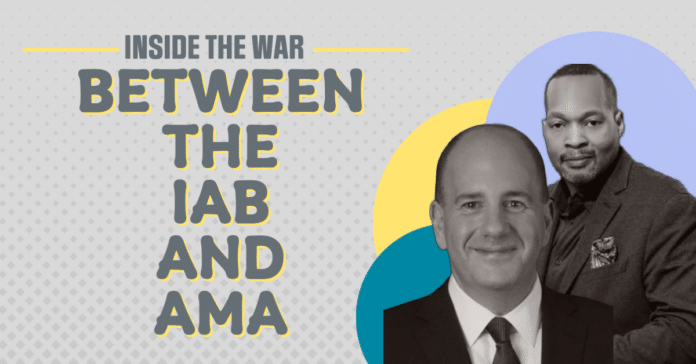In recent years, data privacy has become a highly debated topic in the advertising industry, with tech companies like Google and Apple introducing policies to respond to consumers’ demands for more control over their personal information. As a result, lawmakers in various international markets are also implementing laws that give consumers more influence over the collection, storage, and sale of their data. This year, five new state-level data privacy laws are set to go into effect in the US, and the Federal Trade Commission is in the process of creating new privacy regulations for businesses.
In response to these developments, the Association of National Advertisers (ANA) and the American Association of Advertising Agencies (4A’s) have expressed support for these changes and called for innovation in the industry to help create new privacy-respecting technology. However, these two organizations recently issued a joint statement disagreeing with David Cohen, the chief executive at the Interactive Advertising Bureau (IAB), on his recent comments at the IAB’s Annual Leadership Meeting.
Cohen’s remarks have caused a stir in the advertising industry, as he used political rhetoric to criticize policymakers and tech companies that are advancing consumer data privacy initiatives. He referred to privacy industry leaders as “extremists” and compared data privacy to war, saying that privacy advocates are “attacking” the marketing and advertising sector “from the inside out.”
In response to Cohen’s comments, the ANA and the 4A’s stated, “We do not believe that the IAB’s posture is sufficiently balanced.” The organizations rejected the “acerbic tone, texture, and prescriptions offered by the IAB” and criticized Cohen’s arguments for favoring “the short-term sugar highs of polarizing political rhetoric” over “the art of nuance and listening” on the issue of consumer data privacy.
“We reject the demonization of lawmakers and privacy industry changemakers,” the ANA and 4A’s said in their joint statement. “Instead, we call for more productive collaboration and problem-solving around the issue.” The groups pointed to “examples of leadership” – such as the Media Ratings Council, the Children’s Food and Beverage Advertising Initiative, and the Digital Advertising Alliance – as examples of organizations that have effectively addressed other challenges in the industry through “responsibility” and “self-regulation.”
In response to Cohen’s remarks, the ANA and the 4A’s emphasized the importance of finding a balance between privacy and advertising. “As responsible marketers, we need to continue to put forward reasonable recommendations that provide balance for marketers, agencies, platforms, media, ad tech and… consumers. We can’t just duck our heads and hope that no one will notice. That is most relevant with respect to the issues surrounding privacy,” they said.
Cohen, however, stands by his comments and believes that the IAB’s stance on data privacy is necessary. “Data privacy is not a luxury. It’s a right. But with rights come responsibilities,” Cohen said in a statement. “The advertising industry, including the IAB, has a responsibility to ensure that consumers’ personal information is protected and used responsibly.”
According to Cohen, the industry needs to find a way to balance privacy and advertising, but he argues that it should not be at the cost of the industry’s growth. “We cannot let extremists push us into a privacy bunker where all personalization, innovation and creativity are stifled,“ he added. “The industry needs to come together to find a solution that protects consumers’ privacy while still allowing the advertising industry to thrive and grow.”
Cohen’s statement highlights the need for the advertising industry to find a balance between protecting consumers’ privacy and allowing for innovation and growth. However, his use of political rhetoric to criticize privacy advocates has caused controversy in the industry and sparked criticism from the ANA and the 4A’s. The organizations have called for a more productive approach to finding a solution, rather than using polarizing political language.
“The advertising industry has a long and proud tradition of self-regulation,” the ANA and 4A’s said in their joint statement. “As responsible marketers, we need to continue to put forward reasonable recommendations that provide balance for marketers, agencies, platforms, media, ad tech and consumers. We need to take a collaborative approach to finding a solution that protects consumers’ privacy while still allowing the advertising industry to thrive.”
In conclusion, the debate surrounding data privacy in the advertising industry is far from over. As consumers demand more control over their personal information and lawmakers implement new privacy regulations, the industry needs to find a balance between privacy and advertising. While Cohen’s comments have sparked controversy, the ANA and 4A’s have called for a more productive and collaborative approach to finding a solution. The industry must work together to find a way to protect consumers’ privacy while still allowing for innovation and growth in the advertising sector.











